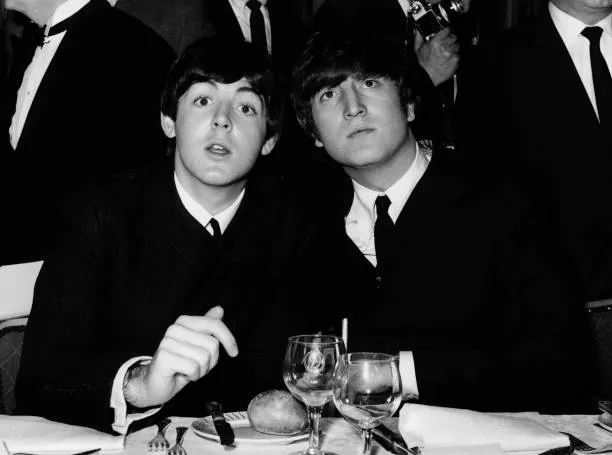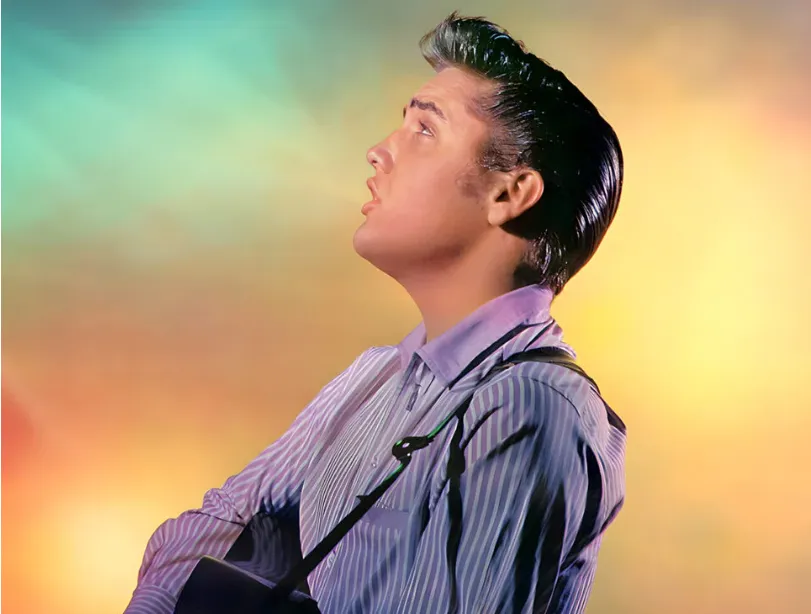Rod Stewart is a name synonymous with timeless rock and heartfelt ballads, but one particular song in his extensive catalog has captured the imagination and touched the hearts of many: "Grace."
This emotional and poignant track tells the tale of a love that endures despite immense tragedy, drawing listeners into a story that is as moving as it is historical.
This article delves into the origins, cultural significance, and the story behind the song "Grace" by Rod Stewart, offering a comprehensive look at how this song came to resonate so deeply with audiences around the world.
The Historical Background: A Love Story Amidst Turmoil
To truly understand the emotional weight of "Grace," it is essential to explore the historical context that inspired the song.
"Grace" is based on the real-life story of Grace Gifford and Joseph Mary Plunkett, two figures deeply involved in Ireland’s struggle for independence from British rule in the early 20th century.

Joseph Plunkett was an Irish nationalist, a poet, and one of the leaders of the 1916 Easter Rising—a rebellion aimed at ending British rule in Ireland.
Grace Gifford, an artist and nationalist in her own right, was deeply in love with Plunkett.
Their romance was marked by both passion and profound political commitment, an amalgamation that would ultimately lead to a heartbreaking conclusion.
The Night Before Execution

The most poignant aspect of this story, and the heart of the song "Grace," centers on the tragic events that unfolded in the aftermath of the Easter Rising.
The rebellion was quickly suppressed by British forces, and its leaders, including Joseph Plunkett, were arrested and sentenced to death.
On the night before his execution, Joseph Plunkett and Grace Gifford were married in a brief but deeply emotional ceremony held in the chapel of Kilmainham Gaol, Dublin.
The couple had only a few short hours together as husband and wife before Plunkett was taken away to be executed by firing squad in the early hours of the morning.
The Creation of the Song
The original song "Grace" was written in 1985 by Frank and Seán O'Meara, two brothers inspired by the power of Grace and Joseph's tragic love story.
The song was first recorded by Irish singer-songwriter Jim McCann, and it immediately struck a chord with listeners due to its heartfelt lyrics and haunting melody.
Rod Stewart, a musician known for his ability to breathe life into ballads and emotional narratives, was drawn to the song's powerful story and timeless message.
His rendition of "Grace," included in his 2018 album "Blood Red Roses," brought a new wave of attention to the song and its historical significance.
Stewart’s Interpretation: A Touch of Soul

When Rod Stewart decided to cover "Grace," he infused the song with his distinct vocal style, characterized by its raspy yet deeply emotional timbre.
Stewart’s interpretation pays homage to the original while adding his unique imprint, making the song accessible to a broader audience.
In interviews, Stewart has shared his admiration for the song and its historical roots.
He emphasized his desire to honor the memory of Grace Gifford and Joseph Plunkett, acknowledging the song as a tribute to their enduring love and the broader struggle for Irish independence.
Lyrical Analysis: A Message of Love and Sorrow
The lyrics of "Grace" are a poignant reflection of the tragic love story between Grace Gifford and Joseph Plunkett.
Lines such as “Oh, Grace, just hold me in your arms and let this moment linger” capture the profound sense of urgency and heartbreak that defined their final moments together.
The song also highlights themes of sacrifice and the passage of time, with lyrics like “The love I had for you / It will live forever on.”
These lines speak to the notion that love transcends even the most harrowing circumstances, offering a sense of hope and continuity despite the immediate sorrow.
Cultural Impact: A Song that Resonates
Since its original release, and particularly following Rod Stewart’s rendition, "Grace" has become more than just a song—it’s a piece of cultural and historical storytelling that resonates across generations.
Its appeal lies not only in the haunting melody and emotive lyrics but also in the universal themes of love, loss, and resilience.
The song has been covered by various artists and is frequently performed at commemorative events, particularly those related to Irish history and the Easter Rising.
The enduring popularity of "Grace" highlights its power to connect with listeners on a deeply emotional level, transcending geographical and temporal boundaries.
Stewart’s Connection to Ireland
Rod Stewart’s decision to cover "Grace" also reflects his personal and musical connections to Ireland. Over the years, Stewart has expressed his affinity for Irish music and culture, frequently incorporating elements of both into his work.
His rendition of "Grace" is a testament to his respect for Ireland’s rich history and its influence on his musical career.
Additionally, Stewart’s interpretations of other folk and traditional songs, such as "The Killing of Georgie" and "The First Cut Is the Deepest," demonstrate his ability to channel complex narratives and emotions through music.
This skill has been instrumental in ensuring that his version of "Grace" resonates with authenticity and sincerity.
The Legacy of "Grace"
“Grace” continues to be a powerful anthem of love and sacrifice, its legacy preserved both by its historical roots and the artists who choose to reinterpret its timeless message.
Rod Stewart's rendition, with its soulful delivery and sincere emotion, has introduced the song to new audiences, ensuring that the story of Grace Gifford and Joseph Plunkett remains alive.
The song also serves as a reminder of the broader struggles for freedom and justice that have shaped history.
It captures the spirit of resistance and the personal costs often borne by those who dare to stand against oppression.
Through "Grace," listeners are invited to reflect on these themes and consider the enduring power of love and human resilience.
A Song That Transcends Time
The story behind "Grace" by Rod Stewart is a compelling blend of history, emotion, and musical artistry.
As a song that tells a tale of enduring love amidst political turmoil, it resonates with listeners far beyond its historical context.
Stewart’s interpretation of "Grace" adds a layer of soul and authenticity, ensuring that this poignant ballad continues to touch hearts and minds.
By delving into the origins and impact of "Grace," we gain a deeper appreciation for the timeless narratives that music can convey. I
n honoring the legacy of Grace Gifford and Joseph Plunkett, Rod Stewart has contributed to a cultural and historical tapestry that reminds us of the enduring power of love, even in the face of insurmountable odds.



